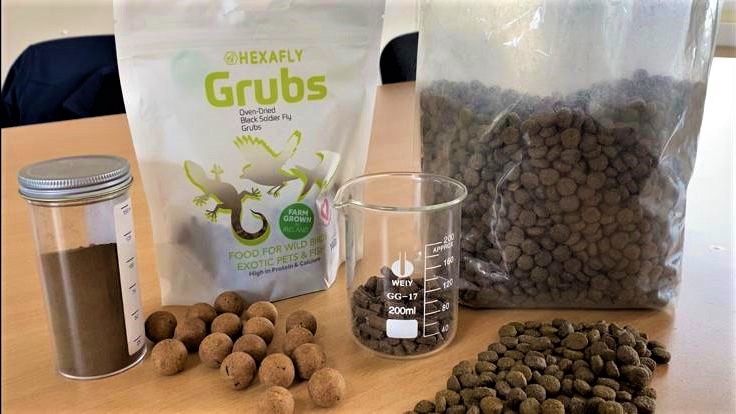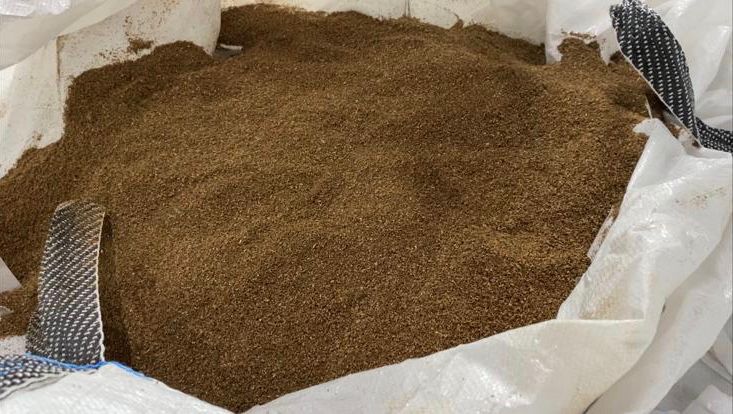Hexafrass, a new insect-based fertiliser, has been proven to enable an immune system response in plants that can render aphids infertile within 72 hours of application, researchers have found.
Researchers at Maynooth University (MU) worked with product-manufacturer Hexafly to investigate the effectiveness of the fertiliser, which is produced from the byproduct of black soldier flies, known as frass.
Speaking to Agriland, CEO of Hexafly Alvan Hunt explained that the plant is enabled to fight the aphids itself, rather than the product fighting the pests.
“We worked with MU on a programme and a number of reports and findings were produced.
“They showed how frass allows plants to develop their immune system and generate a response that renders the aphids infertile through changes in it’s internal biology,” he said.
Hexafrass is one of a number of commodities produced by the Irish company. It has been producing and selling insect-based products Hexameal, Hexaoil and Hexagrubs for a number of years, all of which come from black soldier flies.
Hexafrass production cycle
Hexafly produces all of its products at its plant in Rathdrinagh, Co. Meath. The company runs a zero-waste, circular economy. Hunt outlined the process and stated that the entire cycle takes about two-and-a-half weeks in total.
At the plant, mature flies are kept in a lighted unit in the breeding room where they mate. A phereomone block is used to draw the females down to the floor to lay eggs, which are then removed and taken to the hatchery.

In the hatchery, the eggs are places on a piece of mesh within a tray containing food which is a mixture of distillery waste from Diageo as well as human fruit and vegetable waste.
When the eggs have hatched into larvae, they consume a large amount of food and continue to mature for about seven to ten days in the incubation room. As they continue to consume food, they also produce waste or frass.
While 95% of these larvae will continue on into further processing, the other 5% are separated and go back into the breeding cycle. However, before they become mature flies, they develop a hard cocoon and become known as pupae. This cocoon will ultimately be shed, and will be used later in the production process to avoid waste.
The portion of larvae that do not mature, are taken into Hexafly’s processing hall where the company’s three main products, oil, protein, and fertiliser, are made.

A sieve and robot are used to separate the frass from the larvae, which go on to be heat-treated in an oven, before the oil is extracted in a presser, which is sold on as a raw product.
Following the oil extraction, the remaining protein is sold to the animal and aqua food industries, while the previously separated frass is packaged and sold as a plant fertiliser.


